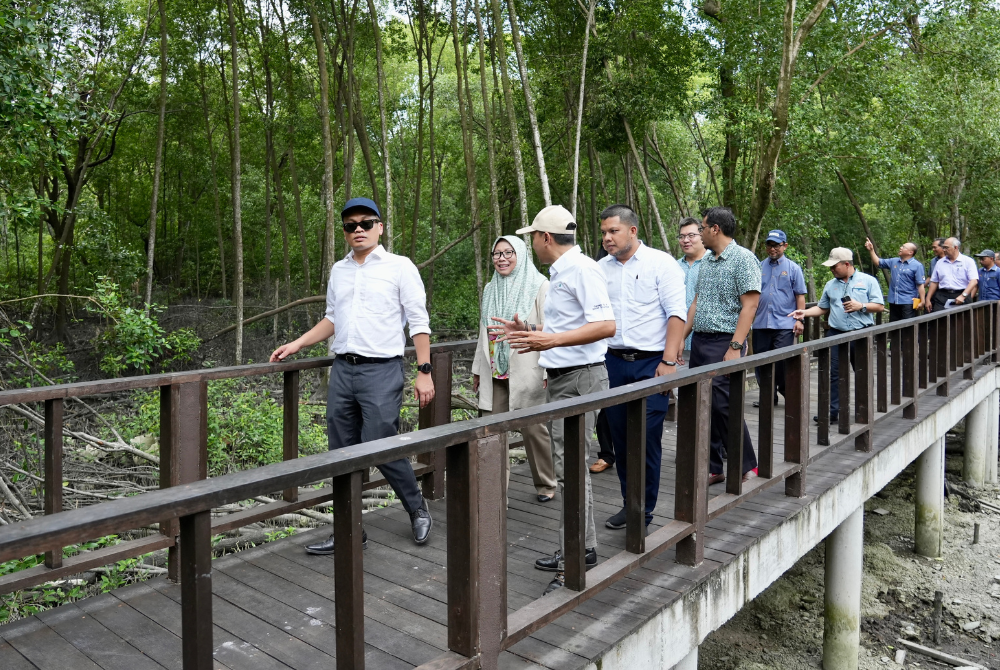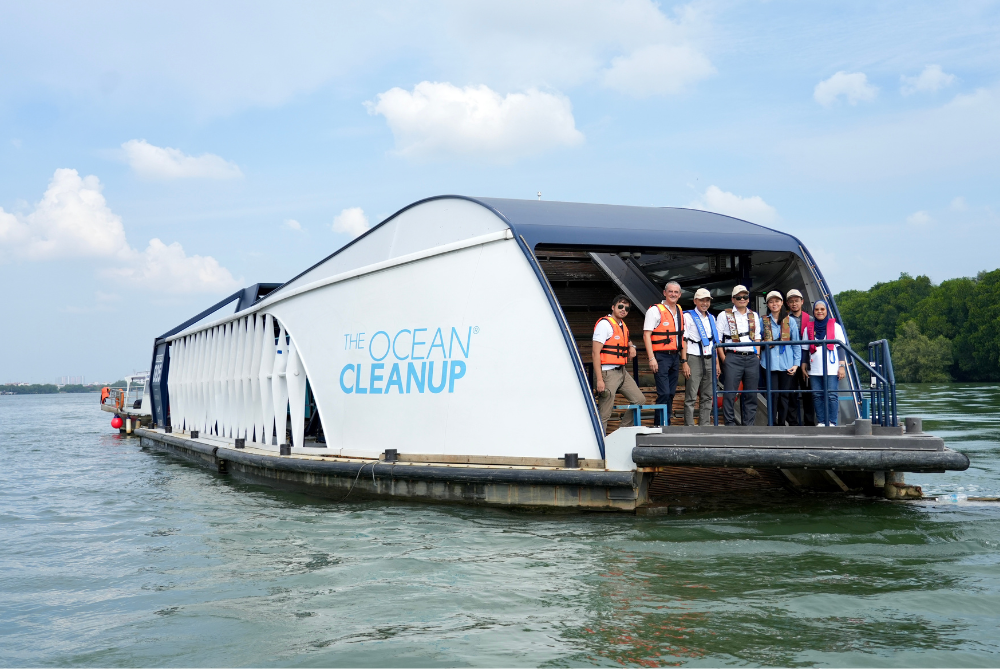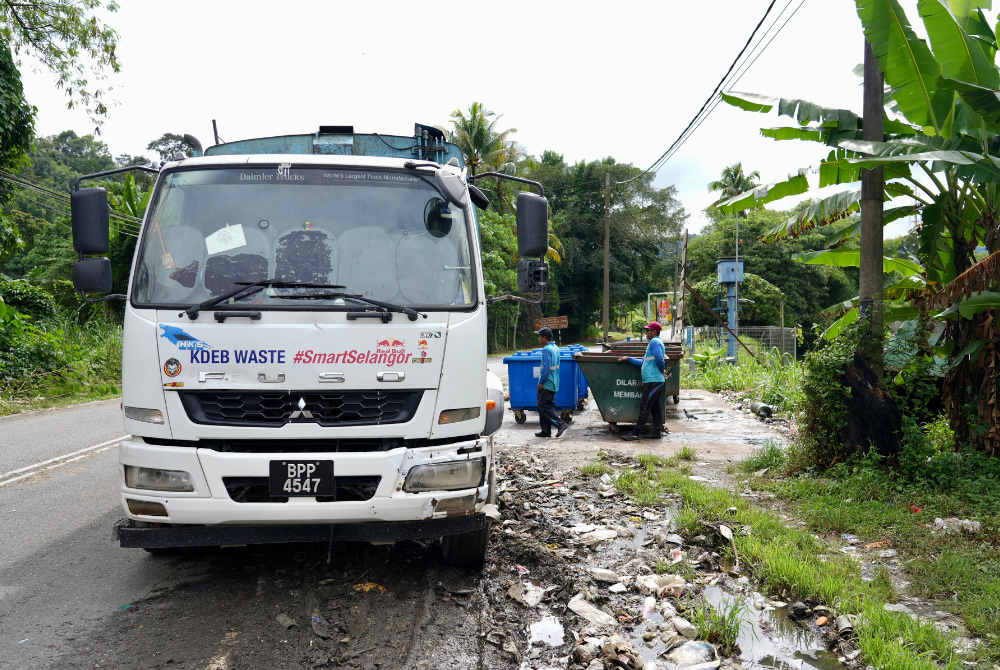MBI rolls out multiple initiatives to shape a greener, sustainable future for Selangor
KOUSALYA SELVAM SYAHIRAH MOKHTAZAR
Menteri Besar Selangor (MBI) is committed to contribute towards the Selangor State Government’s green development in fostering a live-able, sustainable future.
Sustainability is one of the four strategic themes under the First Selangor Plan (RS-1), which reflects the Selangor State Government’s five-year development plan between 2021 and 2025.
Multiple initiatives have been rolled out under MBI to support its sustainability goals which encompasses renewable energy, green mobility and sustainable river management.
For example, the MBI Sustainability Unit was established on Oct 1, 2023 to streamline initiatives for sustainability among its subsidiaries.
Under this unit, the initiatives implemented encompasses areas from reducing the impact on climate change, fostering socio-economic development and improving the well-being of the people, and fostering integrity and ethical culture.
In its effort to reduce the impact on climate change, MBI is conducting consultations with strategic partners to reduce the Greenhouse Gas (GHG) emissions.
With this, there are plans to develop electric vehicle charging stations in Selangor to encourage and promote the shift towards electric vehicles. In addition, MBI also targets to generate renewable energy through the development of solar farms and rooftop solar installations.

In terms of fostering socio-economic development and improve the well-being of the people, MBI targets to develop areas such as the Sabak Bernam Development Area (SABDA), Selangor Maritime Gateway Economic Development Zone (ZPE SMG) and the Integrated Development Region in Southern Selangor (IDRISS) to create social sustainability and sustainable economic growth.
Additionally, MBI targets to provide education to the people in Selangor through Corporate Social Responsibility programmes and higher education institutions such as Selangor University (UNISEL).
In line with all these initiatives, it was imperative for MBI to foster an integrous and ethical culture. This way it can strengthen governance through the adoption of policies applied in MBI and its subsidiaries.
MBI will also set up a Sustainability Committee to monitor the implementation of sustainability initiatives as well as a Procurement Unit to coordinate the implementation of procurement process in MBI.
FOCUS AREAS OF SUSTAINABILITY GOALS
Let’s look at the focus areas of its sustainability goals which reflects the initiatives. Among them are resilience and disaster management, waste management, enhancing biodiversity and natural resources, and to accelerate adoption of low carbon mobility.
For resilience and disaster management, the goal is to enhance preparedness and rapid response for disaster risks and vulnerabilities in communication, coordination and governance. It also aims to address immediate and long-term flood and landslide disasters through mitigation measures.
Water management involves improving water quality resources through monitoring, enforcement, and digitalisation, for biodiversity, the aim is to increase protections of forests and biodiversity and promote nature-based solutions towards enhancing biodiversity.
MBI also aims to improve the efficiency of waste management supply chain and accelerate the adoption of low carbon mobility.

UNLOCKING SELANGOR’S POTENTIALS
To meet RS-1’s low carbon state aspiration, MBI Selangor has tied up with Gentari, a clean energy solutions provider and subsidiary of Petronas to unlock Selangor’s potentials.
In the development of solar as the preferred renewable energy, MBI Selangor has set a target of achieving 1 gigawatt (GW) energy generation capacity by the year 2030.
They are also gearing up for a substantial leap in renewable energy with a dedicated focus on developing 300 megawatts (MW) of solar initiatives.
This comprehensive plan encompasses on-site solutions tailored for both commercial and industrial use, as well as ground-mounted installations and innovative floating solar arrays.
The envisioned timeline for the implementation of these initiatives spans across the next three years.
In terms of advancing green mobility, MBI targets to establish 10,000 electric vehicle (EV) charging points by the year 2025, in addition to exploring the establishment of strategically located charging hubs within the next 12 months.
These hubs, slated for key areas such as Shah Alam, Petaling Jaya, Subang Jaya and Klang will mark a key role in encouraging the adoption of electric vehicles and foster an eco-friendly transportation ecosystem across Selangor.
Food sovereignty is another key area of focus to compliment the sustainability goals in which MBI Selangor is spearheading a strategy to secure a sustainable supply chain from fisheries to agriculture through the Sabak Bernam Development Area initiative in Sabak Bernam.
For example, there are plans to develop the first tuna processing and packaging plant in Malaysia, situated in Sungai Lang, Selangor. This will create between 2,500 to 5,000 job opportunities.
Additionally, MBI Selangor is committed to develop Malaysia’s first integrated fish landing port in Sekinchan, that will be equipped with a comprehensive traceability system that tracks the origin, processing and distribution of every fish product in the facility.














